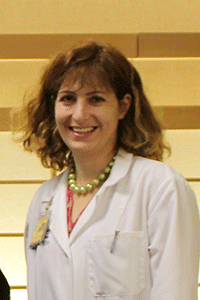In the last decade, online support groups and communities have become popular sources of peer support, including for women with pregnancy and infant loss. Perinatal death--loss of a baby in the second half of pregnancy (stillbirth) or infant death in the first month of life—is traumatic and devastating for parents and impacts more than 50,000 families a year in the United States and more than 5 million families worldwide. African-American women have twice the risk for perinatal loss and similar rates of depression and traumatic stress but are rarely the focus of bereavement research.
A feasibility study, led by Katherine J. Gold, M.D., M.S.W., M.S., associate professor of family medicine and obstetrics and gynecology, will work with the Michigan Department of Health and Human Services to recruit bereaved women of color and with BabyCenter.com, which hosts an online anonymous loss group, to accurately track data on participant usage of an online support group. Fifty women of racial/ethnic minority groups will be recruited shortly after loss to participate for six weeks in the online support group, providing feedback on their experience. The study builds on Gold’s pilot study which examined both anonymous and non-anonymous online interventions for perinatal loss support online. It found that moms strongly preferred active and anonymous sites, like BabyCenter.com, over sites like Facebook where their identity was visible to others. Findings from the MOMSonLINE study were published in OMEGA—Journal of Death and Dying in July 2019.
The project was awarded funding from the Michigan Institute for Clinical and Health Research.
READ ALSO: Why Mothers Need Personal and Clinical Support After a Baby’s Death



